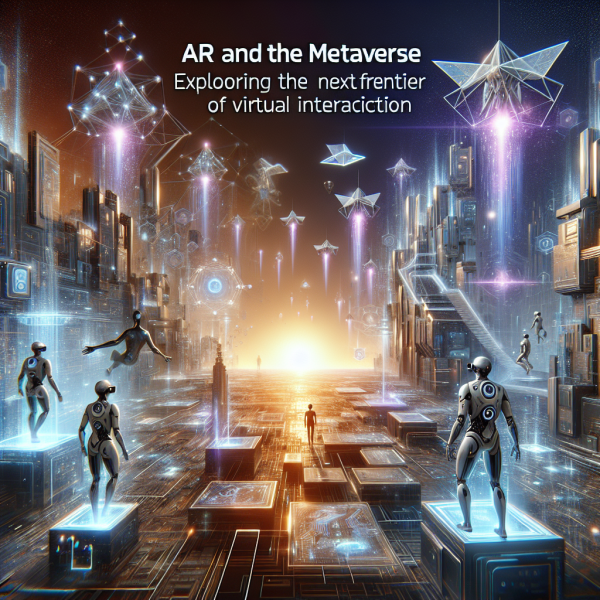Beyond Cryptocurrency: Innovative Blockchain Use Cases You Should Know About

Blockchain technology, often hailed as the backbone of cryptocurrencies, is evolving beyond its original purpose. While Bitcoin and Ethereum have attracted significant public attention, the potential applications of blockchain extend far beyond digital currencies. Its decentralized, transparent, and secure nature offers solutions to various sectors, revolutionizing traditional models and creating new opportunities. Below are some innovative blockchain use cases that showcase its versatility and transformative power.
1. Supply Chain Management
One of the most promising applications of blockchain technology is in supply chain management. By providing an immutable ledger, blockchain enhances transparency and traceability throughout the supply chain process. Companies can track products from origin to destination, ensuring authenticity and reducing fraud. For instance, food industries use blockchain to trace the path of agricultural products, confirming their origin and practices used, enhancing food safety and consumer trust.
2. Digital Identity Verification
Digital identity verification is another area where blockchain can bring substantial benefits. Traditional systems often rely on centralized databases, which are vulnerable to hacking and breaches. Blockchain can create secure, decentralized digital identities that enable individuals to control their personal information. This technology can streamline identity verification processes for services like banking, healthcare, and government applications, reducing the risk of identity theft and improving user experience.
3. Decentralized Finance (DeFi)
Though closely related to cryptocurrencies, DeFi initiatives deserve a special mention. DeFi aims to recreate traditional financial systems—like lending, borrowing, and trading—on decentralized networks. By removing intermediaries, these platforms reduce costs, enhance accessibility, and allow anyone with internet access to participate in financial services. The rise of smart contracts has enabled automated transactions and agreements, fostering innovation and competition in the financial sector.
4. Healthcare Data Management
Blockchain’s ability to secure and manage sensitive data makes it an invaluable asset for the healthcare industry. Patient records can be stored on blockchain, enabling patients to control their medical data while ensuring that it remains consistent across the healthcare system. This not only improves patient care through better access to information but also streamlines administrative processes, reduces costs, and strengthens data security against breaches.
5. Intellectual Property Protection
Artists, authors, and creators face challenges in protecting their intellectual property rights in the digital age. Blockchain offers a solution by enabling the creation of digital certificates of ownership that can be easily verified and transferred. This technology not only helps prevent unauthorized use but also allows creators to gain compensation through smart contracts directly upon sale, bypassing traditional gatekeepers of distribution and reducing transaction costs.
6. Voting Systems
Blockchain can enhance the integrity of voting systems, a dilemma many democracies face today. By using blockchain to record votes securely, the transparency and tamper-proof characteristics of the technology can help build public trust in electoral processes. Voters can verify their votes, and the resulting immutability of the blockchain ensures that the vote count process is auditable and free from manipulation.
7. Real Estate Transactions
Real estate transactions often involve numerous intermediaries, making them expensive and time-consuming. Blockchain can simplify property transactions by enabling the creation of smart contracts that facilitate the buying, selling, and leasing of properties. These contracts automate and secure the transfer of property titles, dramatically reducing the time and costs associated with real estate transactions while increasing transparency.
8. Charitable Donations
Blockchain can significantly improve transparency and trust in charitable donations. By using blockchain technology, donors can track where their money goes, ensuring it reaches the intended recipients and is used for the designated purposes. This transparent tracking fosters greater accountability among charities, driving increased donations from individuals who want to ensure their contributions make a real impact.
9. Tokenization of Assets
The tokenization of assets involves converting ownership rights in a particular asset into digital tokens on a blockchain. This process allows for the fractional ownership of high-value assets, such as real estate or artworks, making them more accessible to a broader range of investors. Tokenization can lead to increased liquidity in traditionally illiquid markets, opening exciting investment opportunities.
Conclusion
The promise of blockchain technology extends far beyond the realm of cryptocurrencies. As various industries continue to explore its potential, innovative use cases are emerging, reshaping how we conduct business, manage data, and interact with each other. As blockchain technology matures, its impact on society will likely grow, offering novel solutions to some of the world’s most pressing challenges. Understanding these innovations is not just for tech enthusiasts; it is essential for anyone looking to navigate the future landscape of businesses influenced by this transformative technology. The journey beyond cryptocurrency is just beginning—stay informed and engaged, as the possibilities are truly limitless.













